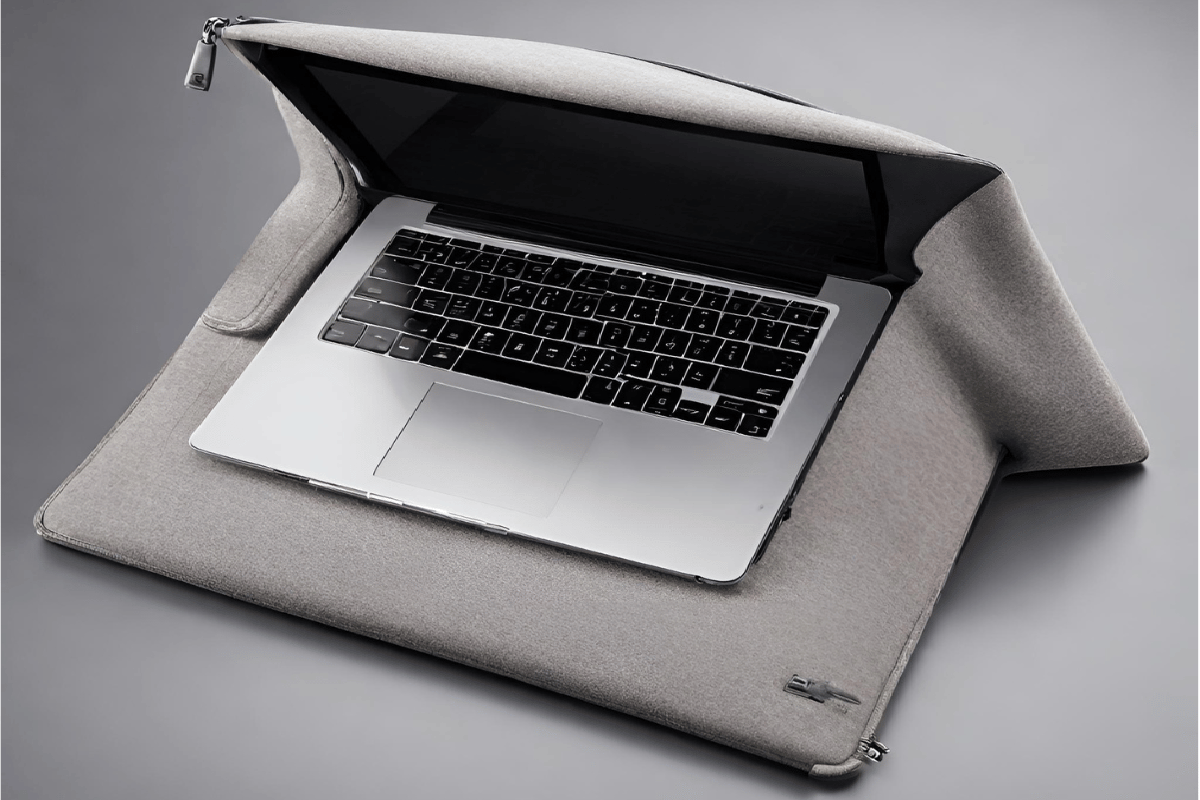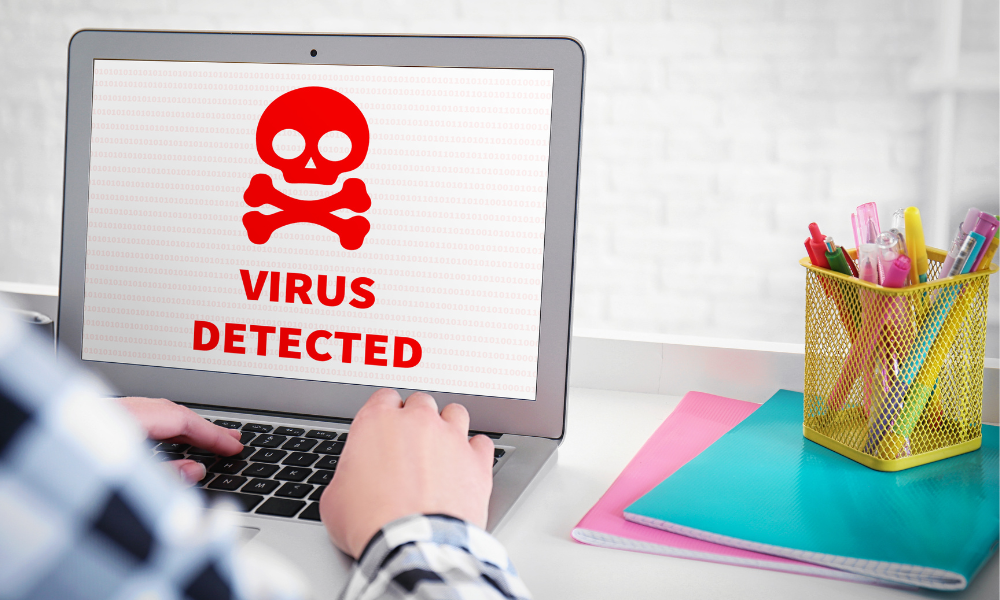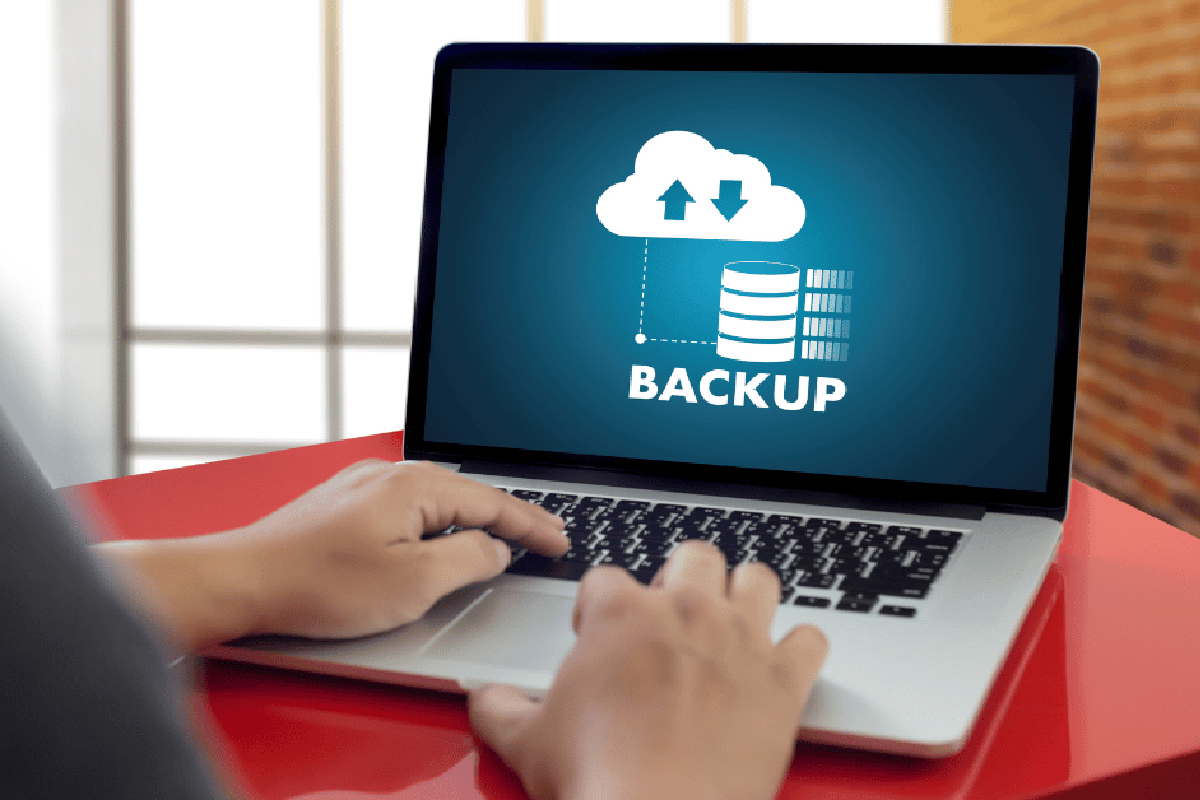To keep your laptop safe, secure, and healthy, follow these essential tips. Physically protect it with a sturdy laptop bag, sleeve, and careful handling. Ensure software security with antivirus software, regular OS updates, and strong passwords. Maintain its performance by cleaning the exterior keyboard and monitoring temperature. Back up your data regularly and consider upgrading to an SSD. Protect your privacy by being cautious of phishing emails, using a VPN, enabling full disk encryption, and setting up a password-protected screen saver.
Keep Your Laptop Safe, Secure, And Healthy:
Physical Protection

Invest in a Quality Laptop Bag
One of the first steps in keeping your laptop safe is investing in a durable laptop bag. Choose one with padding and compartments to safeguard your device from bumps and scratches while on the move.
Use a Laptop Sleeve or Skin
A laptop sleeve or skin adds an extra layer of protection. It shields your laptop from dust, moisture, and minor spills. Make sure it fits your laptop’s size snugly.
Handle with Care
Treat your laptop like a delicate piece of equipment. Avoid dropping it, and be gentle when opening and closing the lid. Rough handling can lead to internal damage over time.
Software Security
One of the most fundamental steps in securing your laptop is setting strong, unique passwords. A strong password typically includes a combination of upper and lower-case letters, numbers, and special characters. Avoid using easily guessable information like birthdays or common phrases.
Enable Two-Factor Authentication (2FA)
Two-factor authentication adds an extra layer of security by requiring you to provide something you know (your password) and something you have (a code sent to your mobile device) when logging into your laptop and online accounts. Enable 2FA whenever possible to protect against unauthorized access.
Keep Your Operating System Updated
Regularly updating your laptop’s operating system (OS) is crucial. These updates often include security patches that address vulnerabilities hackers can exploit. Set your system to download and install updates to stay protected automatically.
Install Antivirus Software

A reputable antivirus program is essential for detecting and removing malware, viruses, and other threats. Regularly update your antivirus software to ensure it can identify the latest threats effectively.
Use a Firewall
Firewalls act as barriers between your laptop and potentially harmful incoming traffic. Ensure your firewall is active, and consider using a network firewall for an added layer of protection.
Protecting Your Privacy

Secure Your Wi-Fi Network
If you use Wi-Fi at home, make sure your network is secured with a strong password. Use WPA3 encryption for your Wi-Fi, and change the default login credentials on your router to prevent unauthorized access.
Be Cautious with Email
Emails are a common vector for phishing attacks. Be skeptical of unexpected emails, especially those with attachments or links. Verify the sender’s legitimacy before opening attachments or clicking on links.
Regularly Backup Your Data
Data loss can happen due to various reasons, including hardware failure and malware. Regularly back up your important files to an external drive or cloud storage to prevent data loss.
Encrypt Your Data
Encrypting your data ensures that even if someone gains physical access to your laptop, they won’t be able to access your files without the encryption key. Many operating systems offer built-in encryption options.
Lock Your Laptop When Not in Use
When you step away from your laptop, either at home or in a public place, lock it or set up a password-protected screen saver. This prevents unauthorized access when you’re not around.
Avoid Public Wi-Fi for Sensitive Tasks
Public Wi-Fi networks are often less secure, making it easier for hackers to intercept your data. Avoid conducting sensitive transactions or accessing confidential information when using public Wi-Fi.
Consider Using a Virtual Private Network (VPN)
A VPN encrypts your internet connection, making it more challenging for third parties to monitor your online activities. This is especially useful when using public Wi-Fi.
Laptop Performance and Health
Avoid Eating and Drinking Near Your Laptop
Accidental spills can cause irreparable damage. Keep food and drinks away from your laptop to prevent accidents.
Don’t Overcharge Your Battery
Overcharging can damage your laptop’s battery. Unplug it when fully charged to extend its lifespan.
Clean Your Laptop’s Exterior
Dust and dirt can accumulate on your laptop’s surface and vents over time. This buildup can hinder proper airflow, leading to overheating and reduced performance. To combat this issue:
- Use a soft, lint-free cloth to wipe down your laptop’s exterior regularly.
- Avoid using harsh chemicals or abrasive materials that may damage the finish.
Clean Your Keyboard
A dirty keyboard not only looks unsightly but can also affect your laptop’s performance.
- Gently remove dust and debris with compressed air and a soft brush.
- Consider using a keyboard cover to prevent future buildup.
Monitor Temperature and Ventilation
Overheating is a common cause of laptop malfunctions, such as unexpected shutdowns and performance slowdowns. To prevent overheating:
- Ensure that your laptop has proper ventilation. Avoid using it on soft surfaces like beds or couches, which can obstruct airflow.
- Consider investing in a laptop cooling pad, especially if you use resource-intensive applications or play games.
Physical Security
Use a Laptop Lock
If you often work in public spaces, invest in a laptop lock to secure your device to a fixed object. This deters theft.
Register Your Laptop
Register your laptop’s serial number and details with the manufacturer. This can aid in recovery if your laptop is lost or stolen.
Regular Maintenance
Scan for Malware and Viruses
Regularly run scans for malware and viruses to ensure your laptop’s continued security.
Monitor Performance
Keep an eye on your laptop’s performance. Slowdowns or unusual behavior could indicate an issue that needs attention.
Keep Your Laptop Cool
Overheating can harm your laptop’s components. Ensure proper ventilation and use a cooling pad if necessary.
Professional Maintenance
Schedule Regular Check-Ups
Consider professional maintenance services to ensure your laptop’s long-term health. Technicians can clean internal components and address any potential issues.
Warranty and Extended Warranty
Protect your investment with a warranty or an extended warranty plan. It can save you from costly repairs in case of hardware failures.
Conclusion
Your laptop is a valuable asset that deserves proper care. By following these tips to keep your laptop safe, secure, and healthy, you can extend its lifespan and enjoy uninterrupted productivity and entertainment. Remember that prevention is key, and investing time and effort in maintaining your laptop today can save you from costly repairs and data loss tomorrow.
FAQs:
Why is it important to protect my laptop physically?
Physical protection is essential because it prevents damage to your laptop’s hardware. Bumps, spills, and accidents can cause significant harm, potentially leading to expensive repairs or data loss.
How often should I update my operating system?
Regularly update your operating system whenever updates are available. These updates often include crucial security patches that protect your laptop from emerging threats.
What are the benefits of backing up my data?
Regular backups protect your important files from loss due to hardware failure or data corruption. They provide peace of mind and an easy way to restore your data.
Why consider upgrading to an SSD?
Solid State Drives (SSDs) are faster and more durable than traditional Hard Disk Drives (HDDs). Upgrading to an SSD can improve your laptop’s performance and data security.
What are phishing emails, and how can I avoid falling for them?
Phishing emails are fraudulent messages designed to trick you into revealing sensitive information. Be cautious, verify sender legitimacy, and avoid clicking on suspicious links or sharing personal data.
